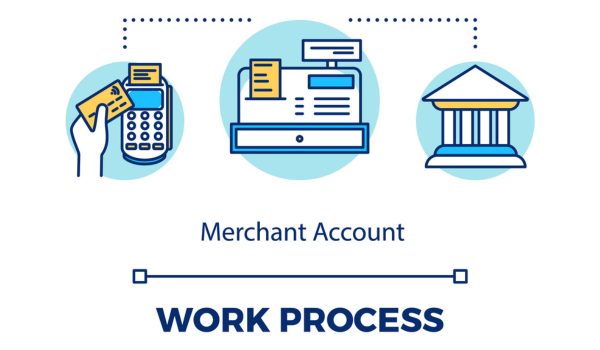
Merchant services for online payments
Online payments have revolutionized the way people shop and do business. Today, businesses can accept payments from customers located anywhere in the world with ease. To facilitate these transactions, merchants need to use a merchant service provider (MSP). An MSP is a financial institution that provides merchants with the ability to accept electronic payments through a variety of methods, including credit cards, debit cards, and e-wallets. In this blog, we will explore merchant services for online payments in detail.
What are Merchant Services?
Merchants can receive electronic payments from customers through financial services known as merchant services. These services typically include credit and debit card processing, online payment gateways, point-of-sale systems, and other electronic payment solutions. Merchant services allow businesses to offer a variety of payment options to their customers and increase sales.
How do Merchant Services Work?
Merchant services work by providing a link between the merchant, the customer, and the financial institution that processes the payment. When a customer makes a purchase, their payment information is transmitted to the merchant's payment processing system. The payment processing system then sends the payment information to the financial institution that issued the customer's credit or debit card. The financial institution verifies the transaction and sends an approval or denial back to the payment processing system Once the transaction is authorized, the funds get transferred from the customer's account to the merchant's account.
Types of Merchant Services for Online Payments
There are several types of merchant services for online payments, each with its own advantages and disadvantages. There are several prevalent kinds of merchant services available, including:
Payment Gateways: Online services that handle electronic payments are known as payment gateways. They act as a bridge between the merchant's website and the financial institution that processes the payment. Payment gateways typically charge a fee for each transaction, which can be a percentage of the sale amount or a flat fee.
Point-of-Sale Systems: Point-of-sale (POS) systems are electronic devices that merchants use to process payments. These systems can accept a variety of payment methods, including credit and debit cards, e-wallets, and mobile payments. POS systems typically require merchants to purchase or lease the hardware and software needed to operate the system.
Mobile Payments: Customers can use their mobile devices to pay for goods and services through mobile payments. These payments can be made through mobile apps, text messages, or mobile websites. Mobile payments are becoming increasingly popular, particularly among younger consumers.
Virtual Terminals: Virtual terminals allow merchants to process credit and debit card payments from any computer with an internet connection. This makes it easy for merchants to accept payments without having to purchase or lease expensive POS equipment.
Online Invoicing: Online invoicing allows merchants to send invoices to customers and receive payments online. This is a convenient option for merchants who provide services rather than physical goods.
Benefits of Merchant Services for Online Payments
There are several benefits of using merchant services for online payments, including:
Increased Sales: Merchant services allow businesses to accept a variety of payment methods, which can increase sales. Customers are more likely to make a purchase if they can pay using their preferred payment method.
Improved Cash Flow: Merchant services provide merchants with faster access to funds. With electronic payments, funds are typically transferred to the merchant's account within a few days of the transaction, compared to several weeks for checks.
Reduced Risk: Merchant services reduce the risk of fraud and chargebacks. When customers pay with a credit or debit card, the financial institution assumes the risk of fraud and chargebacks, rather than the merchant.
Improved Efficiency: By simplifying the payment process and decreasing the time and resources necessary to manage payments, merchant services enable merchants to concentrate on other aspects of their business.
Challenges of Merchant Services for Online Payments
While there are many benefits to technology, there are also some challenges associated with merchant services for online payments. Several typical challenges include:
Security: When it comes to online payments, security is a significant concern. Merchants must ensure that their payment processing systems are secure and comply with industry standards for data protection. They must also protect customer data from potential breaches or theft.
Cost: Merchant services can be costly, particularly for small businesses. Merchants must pay fees for each transaction, as well as monthly fees for access to payment processing services. They may also need to purchase or lease expensive hardware and software to operate their payment processing systems.
Technical Issues: Merchant services rely on technology, which can sometimes fail or experience technical issues. Merchants must ensure that their payment processing systems are functioning properly and have backup systems in place in case of technical issues.
Regulatory Compliance: Compliance with various regulations related to online payments, including data protection laws, anti-money laundering laws, and consumer protection laws, can be intricate and time-consuming for merchants
Choosing a Merchant Service Provider
Choosing a merchant service provider is an important decision for businesses that want to accept electronic payments. There are various factors to consider when selecting a provider, including:
Fees: Merchant service providers charge fees for their services, including transaction fees and monthly fees. Merchants should compare fees from multiple providers to find the most cost-effective option.
Payment Methods: Merchants should consider the payment methods that their customers prefer and choose a provider that supports those methods.
Security: Security is a top priority for online payments. Merchants should choose a provider that uses industry-standard security protocols to protect customer data.
Customer Support: Merchant service providers should offer responsive and reliable customer support in case of technical issues or other problems.
Conclusion
Merchant services for online payments have transformed the way businesses accept payments from customers. By providing a variety of payment options and streamlining the payment process, merchant services can help businesses increase sales, improve cash flow, and reduce risk. However, there are also challenges associated with merchant services, including security concerns, cost, technical issues, and regulatory compliance. When choosing a merchant service provider, businesses should consider factors such as fees, payment methods, security, and customer support to find the best option for their needs. With the right merchant service provider, businesses can enjoy the benefits of electronic payments and provide a seamless and convenient payment experience for their customers.







